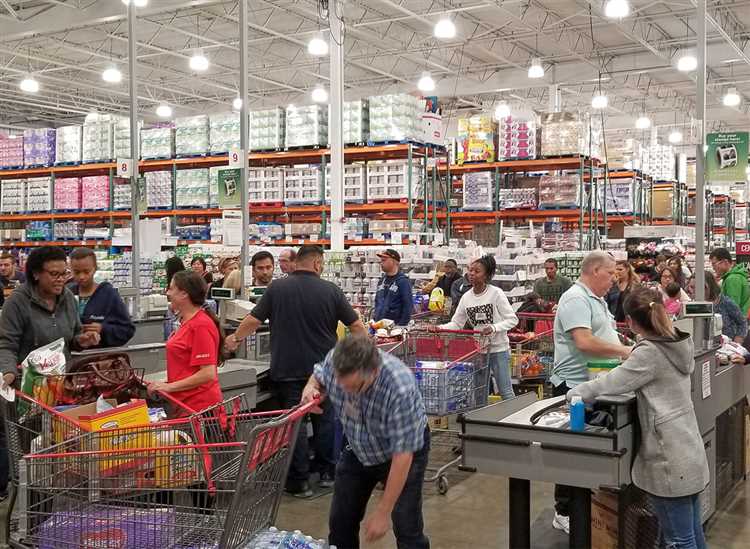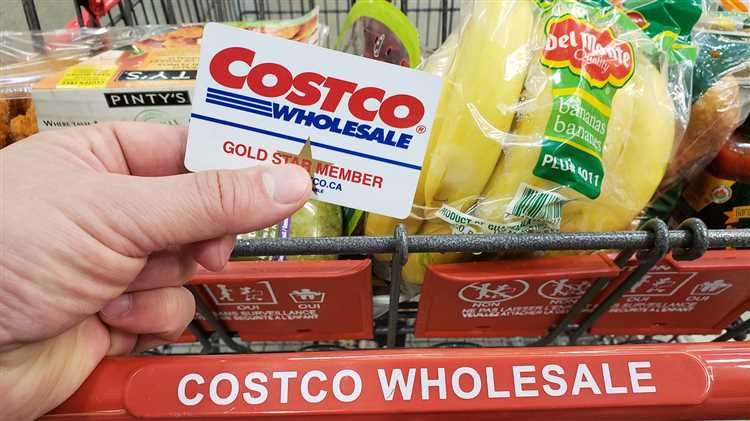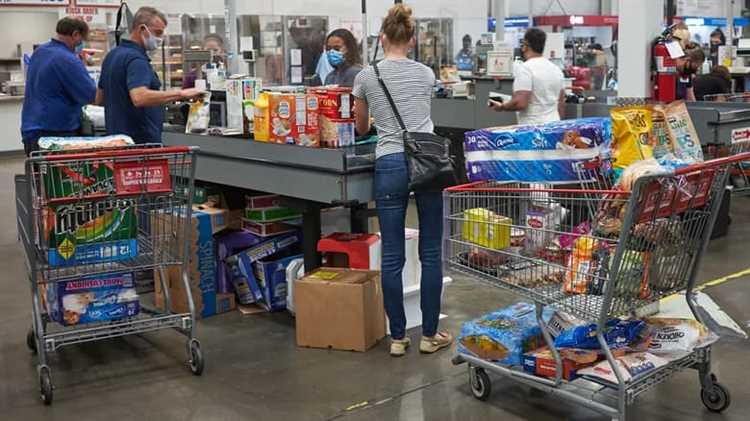Costco, one of the largest retail giants in the world, has gained quite a reputation for its distinctive shopping experience and competitive prices. However, one peculiar aspect of the store has puzzled many shoppers: the absence of plastic or paper bags at the checkout counter. Instead of providing them for free, Costco encourages customers to bring their own reusable bags, or use the empty boxes available throughout the store.
The decision to not provide bags is rooted in Costco’s commitment to the environment. By eliminating the use of disposable bags, the company aims to reduce plastic waste and promote sustainable practices. Costco believes that by encouraging customers to bring their own bags, they can help minimize the environmental impact caused by plastic bag production and disposal. This move aligns with their goal to be an environmentally responsible and socially conscious retailer.
Costco’s stance on bags is not without controversy. Some shoppers find it inconvenient and argue that the store should still offer bags as a service. However, this inconvenience is a small price to pay when considering the larger impact on the environment. Costco’s decision forces customers to rethink their consumption habits and encourages them to be more mindful of their ecological footprint.
In addition to reducing plastic waste, Costco’s bag policy has financial benefits as well. By not providing bags, the company is able to cut down on expenses, which can translate into lower prices for their customers. This strategy aligns with Costco’s dedication to providing value to their members and remaining a competitive force in the retail industry.
Overall, Costco’s decision to not provide bags reflects their commitment to sustainability and responsible business practices. By encouraging customers to bring their own reusable bags or use alternative options, Costco sets an example for other retailers to follow. Their bold stance serves as a reminder that every small action can make a difference in preserving our planet for future generations.
- Costco’s Commitment to Sustainability
- Environmental Initiatives
- Waste Reduction
- Environmental Impact of Plastic Bags
- 1. Waste Generation:
- 2. Marine Pollution:
- 3. Fossil Fuel Consumption:
- Costco’s Efforts to Reduce Plastic Waste
- Benefits of Not Providing Bags
- 1. Environmental Footprint Reduction
- 2. Cost-saving Measure
- Q&A:
- Why doesn’t Costco provide bags?
- How does Costco’s decision to not provide bags benefit the environment?
- Do other retailers provide bags?
- Are there any alternatives to plastic bags that Costco offers?
- What can customers do if they forget to bring their own bags to Costco?
- Why doesn’t Costco provide bags to customers?
Costco’s Commitment to Sustainability
Costco is deeply committed to sustainability and reducing its environmental impact. The company recognizes the importance of preserving the planet for future generations and takes proactive steps to minimize its carbon footprint.
Environmental Initiatives

Costco has implemented a number of initiatives to promote sustainability. One of the most notable is the decision to stop providing bags at checkout. By encouraging customers to bring their own reusable bags or purchase eco-friendly options, Costco aims to reduce single-use plastic waste and lower the demand for new plastic production.
Additionally, Costco has made significant investments in renewable energy. The company has installed solar panels on the roofs of many of its warehouses, harnessing the power of the sun to generate clean electricity. This not only reduces Costco’s dependence on fossil fuels but also helps to mitigate climate change.
Waste Reduction
Costco is also focused on waste reduction. The company actively works to recycle and minimize the waste generated at its warehouses. Through comprehensive recycling programs, Costco diverts a significant portion of its waste from landfills. Furthermore, the company actively seeks innovative solutions to reduce packaging waste and promote the use of more sustainable materials.
Community Engagement
Costco believes that sustainability is a collective effort and actively engages with its employees, members, and communities to promote environmental stewardship. The company supports and partners with various environmental organizations, funds research initiatives, and educates its employees and members about sustainable practices. Costco also encourages suppliers to adopt environmentally responsible practices, further extending its commitment to sustainability throughout its supply chain.
In conclusion, Costco’s commitment to sustainability is evident through its environmental initiatives, waste reduction efforts, and community engagement. By prioritizing sustainability, Costco is not only making a positive impact on the environment but also setting an example for other retailers to follow.
Environmental Impact of Plastic Bags

Plastic bags are widely used for carrying groceries, packaging products, and various other purposes. However, their convenience comes at a significant environmental cost. The production, use, and disposal of plastic bags have a detrimental impact on ecosystems and contribute to the global plastic pollution crisis.
1. Waste Generation:

Plastic bags are a major contributor to waste generation. They are lightweight and easily discarded, leading to their accumulation in landfills, rivers, and oceans. The long lifespan of plastic bags means that they persist in the environment for hundreds of years, taking up valuable space and contributing to the depletion of natural resources.
2. Marine Pollution:
When plastic bags are not properly disposed of, they often end up in bodies of water, causing marine pollution. They can be mistaken for food by marine animals, leading to ingestion and entanglement, which can be fatal. The chemicals present in plastic bags can also leach into the water, further harming marine life and disrupting the ecosystem.
Did you know? According to the United Nations Environment Programme, approximately 13 million metric tons of plastic end up in the oceans every year.
3. Fossil Fuel Consumption:
The production of plastic bags requires the extraction and processing of fossil fuels, such as crude oil and natural gas. This process contributes to greenhouse gas emissions and exacerbates climate change. Additionally, the transportation of plastic bags to different locations adds to the carbon footprint associated with their production.
Fun fact: It is estimated that producing a single plastic bag requires about 12 million BTUs of energy, equivalent to driving a car for around 10 meters.
In conclusion, plastic bags have a significant environmental impact, from waste generation and marine pollution to the consumption of fossil fuels. It is crucial for individuals and businesses to adopt sustainable alternatives, such as reusable bags, to mitigate the detrimental effects of plastic bags on the planet.
Costco’s Efforts to Reduce Plastic Waste
Costco is committed to reducing plastic waste and has implemented several strategies to achieve this goal. One of the main ways they have tackled this issue is by not providing bags at their checkout counters. By encouraging customers to bring their own reusable bags, Costco is able to significantly reduce the amount of single-use plastic bags that end up in landfills.
Additionally, Costco has made efforts to switch to more sustainable packaging materials. They actively seek out suppliers who use recyclable materials for their packaging and encourage them to minimize the use of plastic whenever possible. This means that the products sold at Costco are packaged in materials that can be recycled or reused, reducing the overall amount of plastic waste generated.
Furthermore, Costco offers a variety of eco-friendly alternatives to disposable plastic products. For example, they sell reusable water bottles, storage containers, and shopping bags made from durable materials such as stainless steel and fabric. By promoting these alternatives, Costco aims to change consumer behaviors and reduce the demand for single-use plastic items.
In addition to their efforts within the store, Costco is also involved in various initiatives aimed at reducing plastic waste on a larger scale. They actively participate in community clean-up events and beach restoration projects to help remove plastic waste from the environment. Costco has also partnered with environmental organizations to support research and education programs that focus on the importance of reducing plastic consumption.
| Efforts to Reduce Plastic Waste at Costco: |
|---|
| Not providing bags at checkout |
| Seeking out suppliers with recyclable packaging |
| Promoting eco-friendly alternatives to disposable plastics |
| Participating in community clean-up events |
| Supporting research and education programs |
Overall, Costco is taking active steps to reduce plastic waste in their operations and promote eco-friendly practices. By encouraging customers to bring their own bags, sourcing sustainable packaging materials, and promoting alternatives, Costco is playing its part in addressing the global plastic waste problem.
Benefits of Not Providing Bags
Costco’s decision to not provide bags at checkout has several benefits for both the environment and the customers:
1. Environmental Footprint Reduction
By not providing bags, Costco significantly reduces its environmental footprint. Plastic bags are a major source of pollution, with millions of bags ending up in landfills and oceans each year. By eliminating bags, Costco helps reduce plastic waste and the negative impact it has on the environment.
2. Cost-saving Measure

Not providing bags also helps Costco save costs. Bags are an additional expense for the store, and by not offering them, Costco can pass on those savings to its customers in the form of lower prices on products.
Additionally, customers can bring their own reusable bags, which saves them money in the long run by not having to purchase single-use bags at each visit.
However, it’s worth noting that Costco does offer boxes for customers to use for transporting their purchases, further reducing the need for bags.
Overall, by not providing bags, Costco demonstrates its commitment to sustainability and cost-effectiveness while encouraging customers to adopt eco-friendly practices.
Q&A:
Why doesn’t Costco provide bags?
Costco doesn’t provide bags because of its environmental stance. The company believes that by not offering bags, it can reduce waste and encourage customers to bring their own reusable bags.
How does Costco’s decision to not provide bags benefit the environment?
Costco’s decision to not provide bags benefits the environment by reducing the amount of plastic waste that ends up in landfills. By encouraging customers to bring their own bags, Costco helps to minimize the use of single-use plastics.
Do other retailers provide bags?
Yes, many other retailers provide bags for their customers. However, some retailers have also started to follow Costco’s lead and promote the use of reusable bags instead of single-use plastic bags.
Are there any alternatives to plastic bags that Costco offers?
Yes, Costco does offer alternative options to plastic bags. Customers can choose to purchase reusable bags or opt for boxes or other containers for their purchases.
What can customers do if they forget to bring their own bags to Costco?
If customers forget to bring their own bags to Costco, they can either choose to purchase reusable bags from the store or find alternative ways to carry their purchases, such as using boxes or containers that Costco provides.
Why doesn’t Costco provide bags to customers?
Costco doesn’t provide bags to customers as part of its environmental stance. The store encourages customers to bring their own reusable bags to reduce waste and promote sustainability.